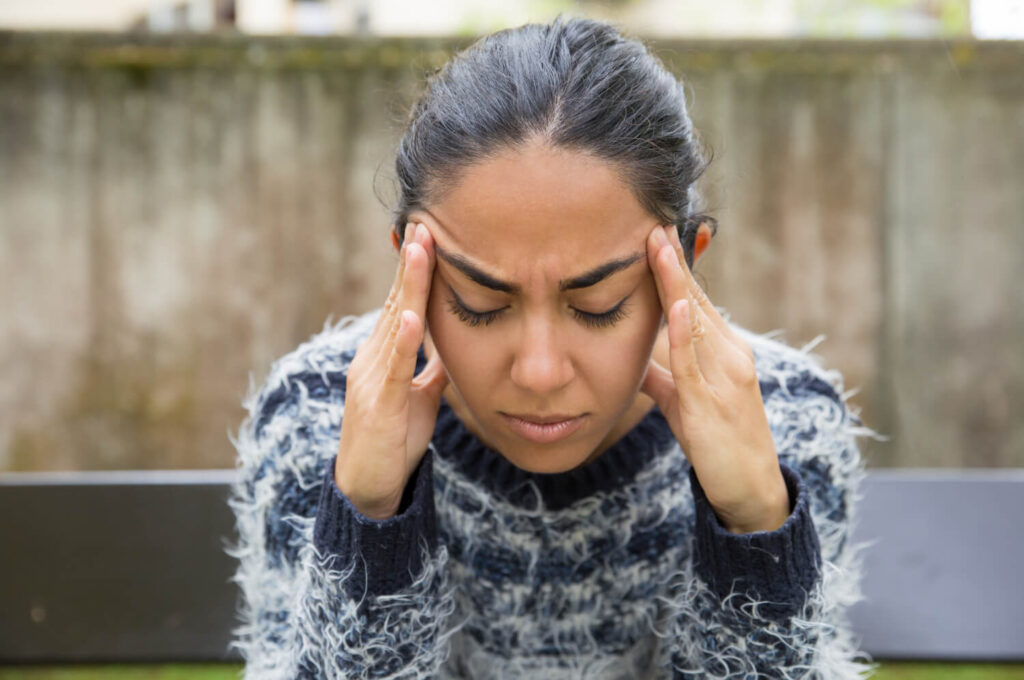Table of Contents
ToggleIntroduction
Living with anxiety can be a constant struggle. It’s that relentless feeling of unease, the racing thoughts, and the tightness in your chest that just won’t seem to go away. If you’ve found yourself battling against the waves of anxious thoughts, know that you’re not alone. Anxiety affects millions of people worldwide, but the good news is that there are effective techniques to manage and alleviate its overwhelming impact. In this comprehensive guide, we’ll delve into a range of proven anxiety management techniques that can empower you to reclaim control over your life and discover a sense of inner peace.

Understanding Anxiety: Unraveling the Knots
Before diving into the techniques, it’s crucial to grasp the underlying mechanisms of anxiety. In essence, anxiety is your body’s natural response to stress. It triggers a cascade of physiological changes, including increased heart rate, rapid breathing, and heightened alertness. However, when this response becomes excessive or disproportionate to the actual threat, it can lead to debilitating anxiety disorders.
Anxiety Management Techniques : Deep Breathing Exercises
One of the most accessible and effective anxiety management techniques is deep breathing. When you sense the onset of anxiety, pause and direct your attention to your breathing. Inhale deeply through your nose, allowing your belly to expand, and then exhale slowly through your mouth. Repeat this process several times, feeling the tension melt away with each breath.
Anxiety Management Techniques : Mindfulness Meditation
Practicing mindfulness meditation can significantly alleviate anxiety symptoms. By cultivating an awareness of the present moment, you can distance yourself from the distressing thoughts that fuel your anxiety. Find a quiet space, sit or lie down comfortably, and focus on your breath or a specific mantra. Let go of judgment and simply observe your thoughts as they come and go.

Anxiety Management Techniques : Regular Exercise
Physical activity isn’t just beneficial for your body; it’s also a powerful tool for managing anxiety. Participating in consistent physical activity triggers the release of endorphins, which serve as natural mood enhancers. Whether it’s a brisk walk, a yoga session, or a gym workout, find an activity that you enjoy and make it a part of your daily routine.
Cognitive Behavioral Therapy (CBT): Rewiring Negative Thought Patterns
CBT is a widely recognized form of psychotherapy that can help reframe negative thinking patterns. By identifying and challenging irrational beliefs, you can learn to replace them with more realistic and positive perspectives. Working with a qualified therapist, you can develop effective coping strategies to confront and overcome your anxieties.
Progressive Muscle Relaxation (PMR): Easing Physical Tension
Anxiety often manifests as physical tension in the body. PMR involves systematically tensing and relaxing muscle groups to promote deep relaxation. Start by tensing a specific muscle group for a few seconds, then release and notice the stark contrast between tension and relaxation. Progress through different muscle groups, allowing a wave of calmness to wash over you.

Establishing a Consistent Sleep Routine: Prioritizing Rest and Recovery
Adequate sleep is integral to your overall well-being, including your mental health. Establishing a consistent sleep routine can regulate your body’s internal clock and enhance your ability to manage stress. Aim for 7-9 hours of quality sleep each night, create a calming bedtime ritual, and ensure that your sleep environment is conducive to relaxation.
Limiting Caffeine and Alcohol Intake: Nurturing a Balanced Mind
While that morning cup of coffee may provide a temporary energy boost, excessive caffeine intake can exacerbate anxiety symptoms. Similarly, although alcohol might offer temporary relief, it can disrupt your sleep patterns and trigger heightened anxiety the next day. Opt for healthier alternatives like herbal teas and plenty of water to keep your mind and body in harmony.
Cultivating a Supportive Social Network: Sharing the Burden
Isolating yourself can amplify feelings of anxiety and loneliness. Connect with dependable friends, relatives, or supportive communities who are willing to lend a sympathetic ear and offer their support. Opening up about your struggles can alleviate the emotional burden and remind you that you’re not alone in your journey towards better mental health.
Setting Realistic Goals and Priorities: Embracing Balance and Boundaries
Anxiety often thrives on overwhelming demands and unrealistic expectations. Learning to set realistic goals and priorities can help you manage your time and energy more effectively. Break down complex tasks into smaller, achievable steps, and don’t hesitate to say no when necessary. Remember that your well-being is paramount.
Conclusion

By implementing these anxiety management techniques into your daily life, you can pave the way for a calmer and more resilient tomorrow. Remember that healing is a journey, and it’s essential to be patient and compassionate with yourself along the way. Stay committed to your well-being, seek professional guidance when needed, and trust in your ability to overcome the challenges that come your way. With dedication and perseverance, you can reclaim control over your mind, body, and spirit, and cultivate a life that is defined by peace, balance, and inner strength.
Frequently Asked Questions (FAQs)

Q: What are the common symptoms of anxiety?
Anxiety can manifest in various ways, including excessive worry, restlessness, irritability, difficulty concentrating, muscle tension, and sleep disturbances.
Q: What is the typical duration for anxiety management techniques to demonstrate their efficacy?
The effectiveness of these techniques can vary from person to person. Some individuals may experience immediate relief, while others may notice gradual improvements over time with consistent practice.
Q: Can anxiety management techniques completely eliminate anxiety?
While these techniques can significantly reduce anxiety symptoms, complete elimination may not always be possible. However, they can empower individuals to effectively cope with and manage their anxiety in everyday life.
Q: Is it necessary to seek professional help for managing anxiety?
While self-help techniques can be beneficial, it’s essential to consider professional guidance, especially for persistent or severe anxiety. A mental health professional can offer personalized strategies and interventions tailored to your specific needs.








